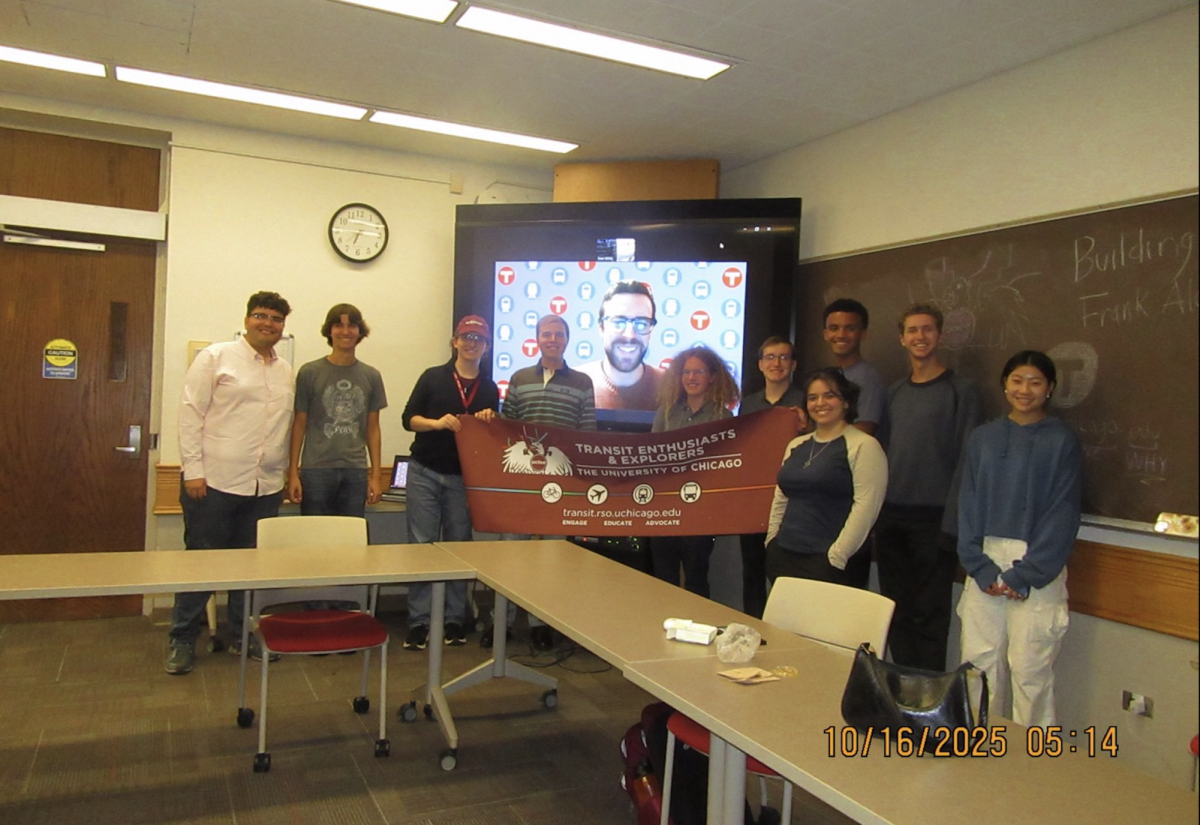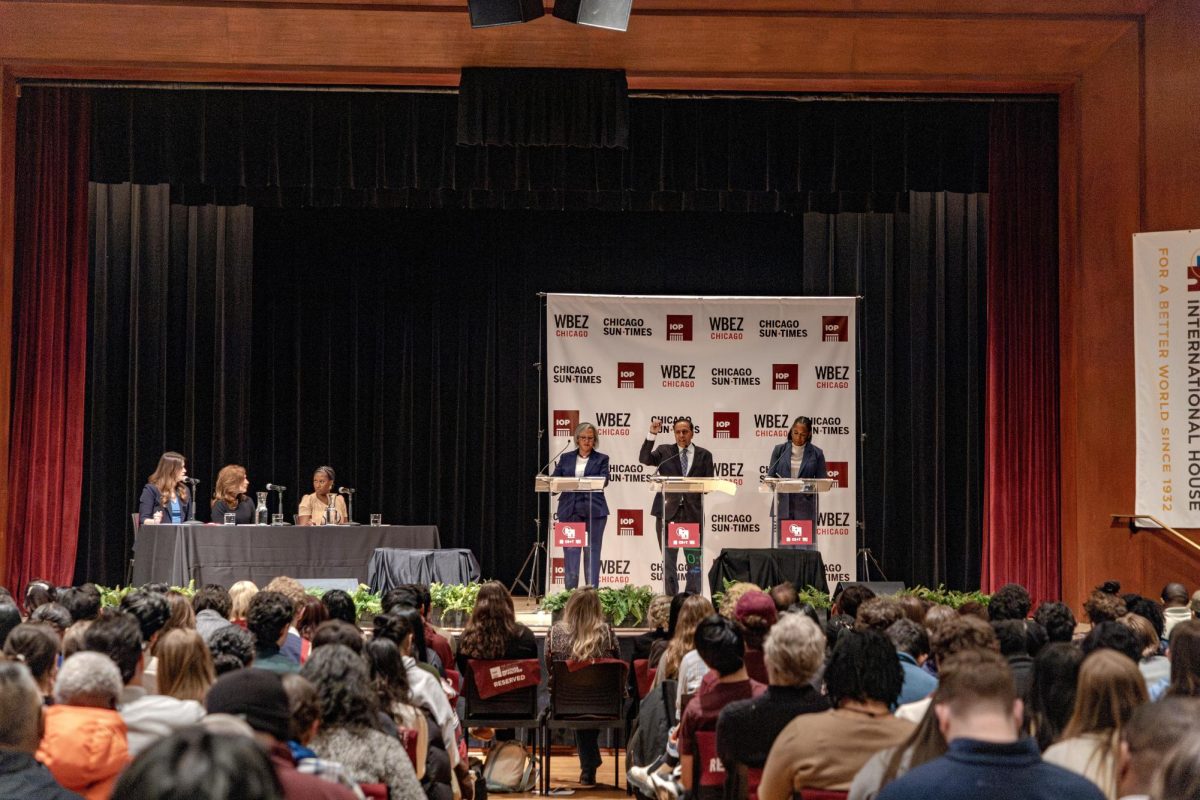The UChicago Transit Enthusiasts and Explorers RSO has begun a campaign advocating against impending cuts to CTA services in 2026. The group is planning to visit Springfield with student groups from other Chicago-area universities when state lawmakers meet in November to address the Chicago Transit Authority (CTA)’s $202 million deficit.
Due to the current fiscal cliff, Hyde Park bus routes 171, 172, 192, 2, 59, and 28 could see service cuts or outright elimination, and 24-hour bus services could be shortened to run from 6 a.m. to 9 p.m.
The CTA intends to implement a $0.25 price hike starting February 1, despite forecasting the move will lead to ridership decline of 10.1 percent by 2028.
CTA ridership declined by about 30 percent from 2019-2024. Operating expenses have increased by over $403 million, while revenue has only increased by $127 million. As COVID-era emergency funds runs dry, legislators have scrambled to determine sources of new funding to close the gap.
The Transit Enthusiasts organize events such as group excursions to transit museums, station tours and other transportation-themed locales. Transit Enthusiasts president Dariel Rodriguez said in an interview with the Maroon that “people would just come and talk about transportation issues in and around the country, or send pictures of cool trains or cool designs of different buses and planes that they saw.”
However, the RSO grew concerned about the funding and maintenance pitfalls facing Chicagoland transportation and reoriented from discussing transit to defending it. “Transportation is constantly under attack, not just in Illinois, but all around the country,” Rodriguez said. “We can’t sit here and talk about how great transportation is as it’s being dismantled.”
Rodriguez hopes the Transit Enthusiasts can mobilize Chicagoland students. “We have a goal of getting 2,000 signatures on our petition by the end of January amongst all of our Chicagoland universities,” he said. The effort has drawn students from DePaul University, University of Illinois-Chicago, Columbia College, and Northwestern University. Their petition asks students to digitally sign a letter to state legislators supporting public transit and opposing service cuts.
Students are planning a “Day of Action” on October 28 and 29 to visit Springfield, where the Illinois legislature will be holding a veto session. There, the coalition will use the signatures gathered in the petition to press the state government to approve additional funding for the CTA. Modifications to the CTA’s budget could pass with a supermajority during this veto session, which gives the coalition a chance to influence this decision. A funding increase during the veto session is the state’s last chance to ensure that the CTA can avoid service cuts.
Illinois State Senator Mike Simmons (D-7th district) told the Maroon that the CTA—despite its shortfalls—is worth protecting. “People say a lot of negative things about public transit in Chicago, but… we have a good grid, we have buses that are present every half-mile all throughout the city and that run pretty regularly, and I think that’s an asset,” he said.
Chicago Studies professor Nicholas Foster said that the CTA’s service cuts could have unequal consequences for areas that have already suffered from disinvestment, and with the elimination of the CTA’s offerings, “[a] lot of neighborhoods won’t function.”
“South Side buses have been particularly affected,” Foster said. “Per capita, the South Side would [be harmed due to service cuts] because there’s [fewer] cars, especially [commuting] to jobs downtown. But the North Side [will hurt] as well.”
Rodriguez echoed those concerns: “The South Side is already pretty disconnected on transportation. With these budget cuts, the South Side receives a disproportionate amount of cuts as compared to the Northside and Westside, and what is already kind of a transit desert will become a transit sandbox [if these cuts go into effect].”
Michael Gillis, the director of communications for Metra, said difficulties may extend to Metra services due to CTA service cuts, even as Metra itself has stretched its COVID relief funding further. “We try to coordinate the times on [Metra and CTA services]. It becomes a little more difficult when we can’t run services as often as we want to, because making those connections gets a little bit harder,” he said.
Simmons described the crisis an opportunity for growth and restructuring. “This fiscal hole may be a huge challenge for transit systems and for our state, but it’s also been a huge opportunity in terms of… making it a more efficient, coherent system,” he said. Illinois State Representative Kam Buckner, who represents parts of Hyde Park and Woodlawn, has pushed to consolidate the CTA, Metra, Pace into one system.
Rodriguez hopes students will recognize the importance of public transit despite the University’s own offerings. “It’s important to care about public transit because you only have [Via and UChicago-specific transportation options] for the next four years,” he said. “After you graduate, if you choose to stay in Chicago, you’re out of luck…. We’re very lucky to have our [own] transportation system in Hyde Park, but that transportation system is designed only with Hyde Park in mind.”
Simmons argues that a solution is possible at the legislative veto session, especially if members of the public support a funding solution. “What we need here is the political will and the political courage to land this plane,” he said.
















JJ / Oct 30, 2025 at 10:18 am
Hand-wringing over “transit deserts” is lifted straight from a PowerPoint on civic virtue, unburdened by any grasp of public-finance reality. Here is the simple truth: the CTA’s budget collapsed under mismanagement and declining ridership. It had nothing to do with people “not caring” (a manifestly absurd argument).
Yet again, the Maroon gives self-styled reformers full spread treatment, mistaking cosplay for competence.
Phil The Phoenix / Oct 29, 2025 at 6:39 pm
Trains are cool and so is UChicago Transit Enthusiasts